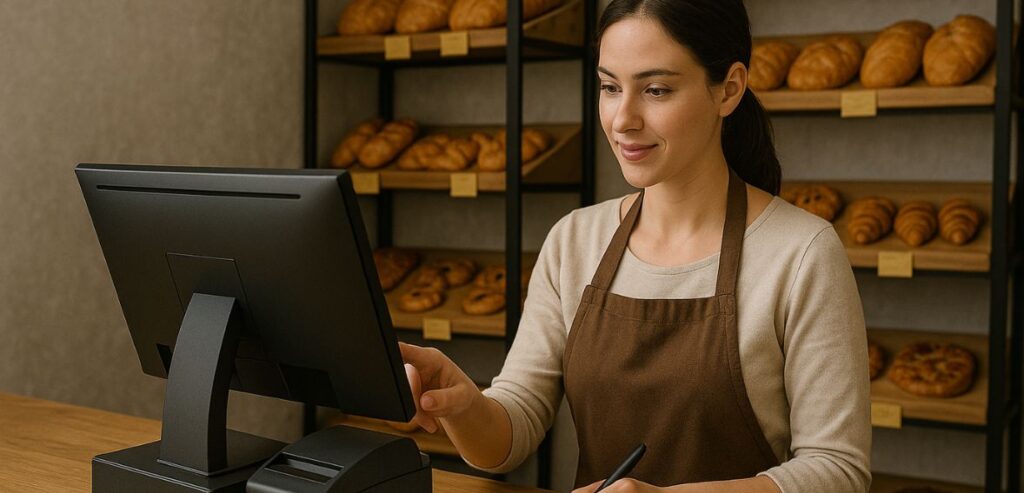
By Bella Zhang June 18, 2025
For a bakery, every hour counts. Early morning sales, late-night orders, and weekend rushes are all part of the rhythm that keeps the ovens hot and the tills busy. But what happens when the payment system suddenly fails? Whether it’s during a holiday sale or the regular morning queue, a breakdown in payment processing can quickly snowball into lost revenue, unhappy customers, and operational chaos.
Bakeries mainly depend on reliable transaction systems in the digital age. Consumers expect real-time confirmations, speedy checkouts, and a variety of payment options. A small error might be forgiven once, but persistent problems cause annoyance and harm to one’s reputation. Without round-the-clock processing support, even a small outage can disrupt the schedule and revenue for an entire day.
Understanding the Impact of Payment System Failure
A bakery runs on efficiency and rhythm. From early-morning supply deliveries to customer orders queued before sunrise, every transaction needs to be smooth. When payment system failure occurs, it brings more than just a pause; it disrupts the flow. Customers who can’t pay quickly may abandon their purchase, and long wait times cause friction, especially during peak hours.
Many bakeries operate on tight margins. Losing just a few high-volume sales a day because of system outages adds up quickly. Regular customers may decide to skip their usual visit, or worse, switch to a nearby competitor who offers a hassle-free experience.
The damage isn’t just financial. Trust is one of the strongest drivers of customer loyalty. A glitchy payment terminal, lagging software, or card reader outage can make the business look unprepared or unreliable. Staff may also struggle to process manual orders, leading to errors or uncomfortable interactions at the counter.
For a small bakery without access to round-the-clock technical help, the time it takes to fix these issues can stretch into hours. During that downtime, the cash register might be empty even if the shelves are full. This highlights the urgent need for 24-hour processing support as a safeguard against these losses.

Bakery Transaction Issues Affect More Than Just Sales
When bakery transaction issues occur, most people focus on the immediate concern: missed sales. But the ripple effect runs much deeper. Think about what happens internally when customers can’t check out with ease. Staff may scramble for workarounds, such as taking manual card details or suggesting cash payments. This not only slows down service but opens the door to errors, fraud, or reconciliation problems later.
Staff confidence also takes a hit. Employees thrive in a structured, predictable environment, especially when handling food and finances. If payment tools become unreliable, team members are left juggling technology while trying to maintain customer service standards. This strain can lead to burnout or mistakes in other parts of the operation, like order fulfillment or product handling.
In addition, there is administrative chaos. It becomes more difficult to reconcile the day’s earnings if transactions fail in the middle or if records are inconsistent. Bakery managers or owners may have to spend hours resolving customer complaints about missed charges, issuing refunds, or correcting figures. Customer sentiment also changes. Regular customers who used to quickly complete a 5-minute purchase might now doubt the bakery’s dependability. In the food industry, a few bad experiences during busy times can quickly damage a reputation that has been cultivated over years.
Reliable payment technology and 24-hour processing support prevent these deeper issues. They are essential for not just keeping the business operational, but for protecting the hard-earned trust of both staff and customers.
Why 24-Hour Processing Support Is Critical for Modern Bakeries
Bakery hours are far from standard. Some open their doors before 6 a.m., while others take late-night online orders or participate in weekend markets. This non-traditional schedule means that issues can arise at any time, not just during typical office hours. If a business faces payment system failure on a Sunday morning or during a midnight bulk order, waiting until Monday for assistance is not an option.
24-hour processing support ensures that bakeries are never left in the dark when technology fails. Whether it’s a software bug, connectivity issue, or hardware error, having expert help available at any time makes a critical difference. Real-time support enables faster recovery, minimizes lost revenue, and maintains smooth customer service even during peak demand.
In many cases, early intervention prevents bigger breakdowns. A slow terminal at 5 a.m. might become unusable by 8 a.m. if not addressed quickly. With around-the-clock access to technical assistance, small glitches can be identified and fixed before they escalate. This type of support also boosts staff confidence. Knowing that a quick solution is just a phone call or chat message away helps team members stay calm under pressure. It allows them to focus on baking, serving, and selling; rather than troubleshooting.
As bakeries expand into online sales or partner with delivery platforms, the need for consistent and responsive support grows. Even a brief lapse in payment capability can lead to customer refunds, platform penalties, or cancellations. Investing in 24-hour processing support is, therefore, a smart and scalable move for bakeries of all sizes.
The Role of Integrated Systems in Reducing Downtime
To minimize bakery transaction issues, many businesses are turning to integrated systems that combine POS tools with payment gateways, inventory tracking, and reporting. These systems streamline operations and reduce the chances of data mismatch or user error, which are common causes of downtime.
Additionally, more reliable diagnostics are made possible by integrated systems. In the event of a failure, technicians are able to promptly determine the cause, be it a hardware malfunction, a local network issue, or a payment gateway issue. In the absence of integration, business owners often have to manage several providers in order to pinpoint the issue.
Automation plays a big role too. Scheduled updates, remote diagnostics, and auto-restart features mean the system can self-correct before the issue disrupts sales. Paired with 24-hour processing support, integrated solutions become even more powerful, offering both prevention and cure.
For example, a bakery that uses cloud-based payment tools can receive alerts when transactions slow down or fail. Support teams can then step in immediately, reducing the chance of long delays. As more businesses adopt digital-first models, including contactless and mobile payments, seamless integration becomes a critical piece in maintaining consistent uptime.
Real-World Scenarios of Payment Failure in Bakeries
Consider a neighborhood bakery that relies heavily on Saturday morning foot traffic. One weekend, the card reader stops working just as the line of customers starts forming. The staff scrambles to reboot the device, but nothing works. With no 24-hour processing support, they can only offer cash transactions. Several customers walk away. By noon, hundreds of dollars in potential sales are lost.
Another bakery operates an online ordering system. Late at night, a glitch prevents payments from being processed correctly, causing orders to fail silently. The owner only notices the problem the next morning, by which time a bulk order from a corporate client has been missed. That one oversight leads to a lost client, a hit to the bakery’s online reviews, and a day of damage control.
In both cases, timely support could have made a difference. These examples show that payment system failure is not a rare inconvenience. It’s a real threat to business continuity, customer satisfaction, and financial health.

How to Choose the Right Provider for 24/7 Payment Processing Support
Not all payment providers offer true 24-hour processing support. Some label basic email help or chatbots as round-the-clock service. For bakeries, especially those with non-traditional hours, it’s essential to choose a provider that guarantees live human assistance at any time. Start by checking what channels are available. A good provider will offer phone, live chat, and email support. They should also provide a service-level agreement that outlines response times and escalation procedures.
Knowledge of the local area is another crucial component. If your bakery uses specific hardware or operates in a particular area, the support staff should be aware of those circumstances. In an emergency, time zone alignment, language support, and technician availability are all important. The most important factor is reputation. Seek out reviews and case studies that demonstrate the provider’s prior handling of bakery transaction problems. Reliable partners are characterised by their promptness, professionalism, and clarity in times of crisis.
Ultimately, your provider should act as an extension of your business, ensuring your technology works when your team and your customers need it most.
Investing in Uptime Is Investing in Customer Loyalty
Beyond technical recovery, the cost of payment system failure is measured in customer trust. A single failed transaction can plant seeds of doubt. Repeat issues lead to avoidance. Conversely, consistent, smooth transactions create a sense of reliability that keeps people coming back. Customers notice when businesses take steps to provide fast, safe, and flexible payment options. They also appreciate transparency. If a glitch does occur but is handled quickly and professionally, it may even boost trust rather than erode it.
For bakeries, which often rely on regular customers and community goodwill, uptime is part of brand integrity. People return not just for the pastries, but for the dependable experience. This is why investing in 24-hour processing support should be seen not as a cost, but as a form of long-term marketing. It reinforces the message that the business values its customers’ time, convenience, and satisfaction. That emotional connection, built over dozens of seamless interactions, becomes a competitive advantage that sets the bakery apart in a crowded market.
Conclusion
For bakeries, payment downtime isn’t just inconvenient—it threatens profits and customer trust. With early hours, busy weekends, and online demand, reliable, 24/7 payment systems are essential. Failures cause lost sales and frustration, but smart tech and responsive support can prevent them. Investing in seamless, always-on payments is key to a bakery’s long-term success.